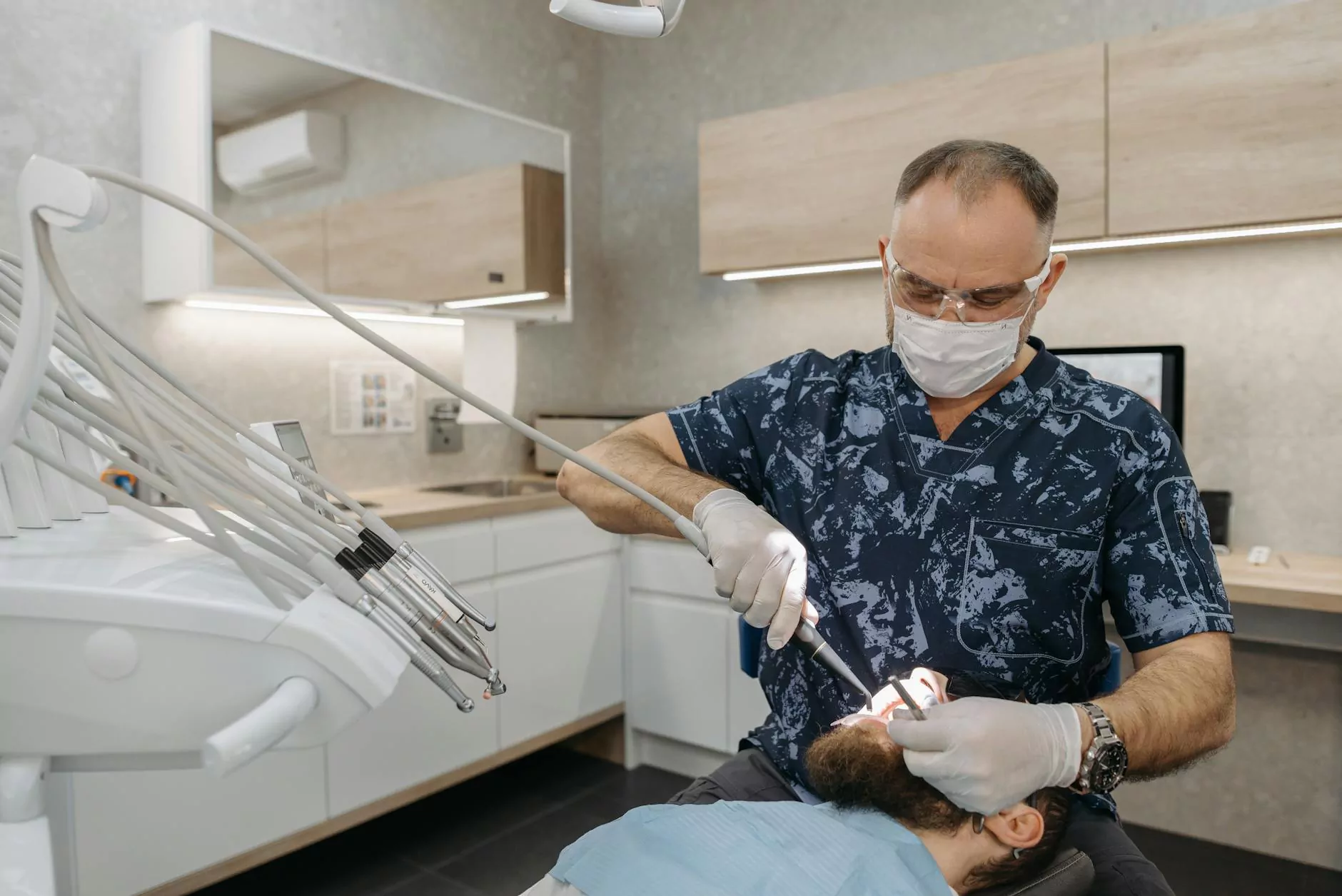The Ultimate Guide to Hospital Dental: Revolutionizing Oral Healthcare in Modern Medical Centers

In the evolving landscape of healthcare, the integration of specialized dental services within hospitals has emerged as a crucial component in delivering comprehensive medical care. Hospital dental services are no longer confined to traditional dental clinics; instead, they are now a vital part of multidisciplinary health centers committed to providing high-quality, specialized oral health care for patients of all ages. This article delves deep into the significance of hospital dental, exploring how leading medical centers are setting new standards in oral health, the range of services offered, technological advancements, and the overall impact on patient outcomes.
Understanding the Role and Importance of Hospital Dental
What is Hospital Dental?
Hospital dental refers to dental care services provided within hospital settings, often by specialized dentists trained in managing complex dental and oral health conditions. Unlike outpatient dental clinics, hospital dental departments are equipped with advanced technology and multidisciplinary support systems, allowing for the treatment of intricate cases that require anesthesia, surgical procedures, or collaboration with other medical disciplines.
The Significance of Integrating Dental Care into Hospitals
- Holistic Health Approach: Hospitals recognize that oral health is intrinsically linked to overall health. Conditions like heart disease, diabetes, and strokes have correlations with oral health issues, emphasizing the need for integrated care.
- Managing Complex Cases: Patients undergoing cancer treatments, organ transplants, or those with systemic conditions require specialized dental care to prevent complications.
- Safety and Comfort: Advanced facilities ensure safe treatment environments, especially for patients with vulnerabilities or those requiring sedation and anesthesia.
- Emergency Dental Care: Immediate and specialized attention can be provided to trauma or infection cases that are critical for patient stability.
Core Services Offered by Hospital Dental Departments
1. Surgical Dentistry and Oral Surgery
Hospital dental departments excel in performing complex oral surgeries, including wisdom tooth extraction, dental implants, maxillofacial surgeries, and treatment of facial injuries. These procedures demand specialized equipment and sterile environments, which hospitals are uniquely equipped with, ensuring optimal patient safety and outcomes.
2. Dental Implants and Prosthodontics
High-quality dental implant procedures often require extensive surgical intervention and post-operative care. Hospitals offer comprehensive implantology services, ensuring the durability and functionality of prosthetic solutions like crowns, bridges, and dentures, especially for patients with systemic health issues.
3. Emergency and Trauma Dental Care
Dental trauma resulting from accidents or sports injuries necessitates immediate and specialized intervention. Hospital dental units are staffed with emergency teams trained to handle complex oral injuries, minimizing the risk of infection and facilitating proper healing.
4. Management of Dental and Oral Diseases
From managing periodontal (gum) diseases to complex cases of oral cancers, hospital dental professionals employ advanced diagnostic tools and multidisciplinary approaches to effectively treat and monitor disease progression.
5. Anesthesia and Sedation Dentistry
Patients requiring extensive dental work or those with dental anxiety benefit from hospital-grade anesthesia and sedation services, provided in a safe, monitored environment by anesthesiologists specialized in dental procedures.
6. Preventive and Pediatric Dental Care
Hospitals emphasize early prevention, education, and treatment of dental issues in children, often incorporating family-centered approaches to foster lifelong oral health habits.
Technological Innovations Powering Modern Hospital Dental Services
Advanced Imaging and Diagnostic Tools
Modern hospital dental departments utilize Cone Beam Computed Tomography (CBCT), digital X-rays, and intraoral scanners to obtain comprehensive diagnostic data. These technologies enhance precision in planning surgical procedures and implant placements, resulting in higher success rates.
Minimally Invasive and Laser Technologies
Laser dentistry offers patients a less invasive alternative with reduced pain, bleeding, and recovery times. Lasers are used in periodontal therapy, lesion removal, and root canal treatments, reflecting the cutting-edge capabilities of hospital dental units.
3D Printing and Digital Workflow
3D printing facilitates the creation of surgical guides, crowns, and other prosthetic devices with unparalleled accuracy. Digital workflows streamline treatment planning and execution, significantly reducing overall treatment time.
The Benefits of Choosing a Hospital Dental Service
- Specialized Expertise: Access to experienced oral surgeons, periodontists, prosthodontists, and anesthesiologists.
- Comprehensive Care: Coordination between dental and medical teams ensures holistic treatment plans addressing all health aspects.
- Enhanced Safety Protocols: Strict sterilization, infection control, and monitored anesthesia procedures.
- Access to Cutting-Edge Technology: State-of-the-art tools and equipment unavailable in regular clinics.
- Effective Emergency Response: 24/7 availability for urgent dental trauma and complex infections.
How Leading Medical Centers Elevate Hospital Dental Standards
Multidisciplinary Collaboration
Major hospitals foster collaboration between dental specialists and other medical fields such as cardiology, oncology, and emergency medicine. This synergy ensures that dental care is seamlessly integrated into overall treatment plans, especially for patients with systemic diseases or undergoing medical treatments.
Continuous Education and Training
Top hospitals invest heavily in staff training, keeping their team abreast of the latest advancements in dental technology and treatment protocols. This commitment results in superior care quality and innovative treatment options.
Patient-Centric Approach
Hospital dental services prioritize patient comfort and personalized treatment. From sedation options to tailored treatment plans, patients receive care that is not only effective but also compassionate and respectful of their individual needs.
Global Trends Shaping the Future of Hospital Dental
Personalized Dentistry
Advances in genetic testing and biomaterials are paving the way for personalized treatments, ensuring better outcomes and fewer complications.
Artificial Intelligence and Data Analytics
AI-driven diagnostics and predictive analytics enable early detection of diseases and more accurate treatment planning, enhancing the overall quality of hospital dental services.
Tele-dentistry Integration
Remote consultations and follow-up care are becoming commonplace, allowing patients to access expert opinion and ongoing care from the comfort of their homes, especially vital during global health crises.
How to Choose the Right Hospital for Dental Care
- Accreditation and Certifications: Ensure the hospital holds recognized dental and medical accreditation.
- Specialist Availability: Confirm the presence of qualified specialists in relevant fields.
- Technology and Facilities: Look for state-of-the-art equipment and modern facilities.
- Patient Reviews and Success Stories: Research patient feedback and treatment outcomes.
- Integrated Care Models: Choose centers that emphasize holistic, multidisciplinary approaches.
Conclusion: The Future of Hospital Dental Services
As healthcare continues to evolve, the role of hospital dental services will become increasingly pivotal in providing comprehensive, safe, and technologically advanced oral healthcare. Hospitals are breaking down traditional barriers by integrating dental care into broader medical treatment, ensuring that patients receive holistic and seamless health management. With ongoing innovations, a patient-centered approach, and multidisciplinary collaboration, the future of hospital dental holds promising potential for elevating global health standards and improving patient quality of life.
For individuals seeking exceptional dental care within a medical setting that prioritizes safety, innovation, and comprehensive treatment, choosing a leading hospital is the most informed decision. These institutions exemplify the future of oral healthcare—cutting-edge, integrated, and patient-focused.
Visit bestclinicabroad.com to discover world-class hospital dental services and experience healthcare that redefines excellence.









